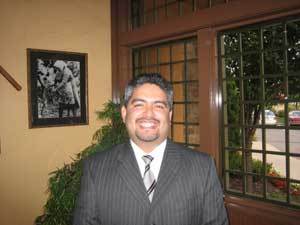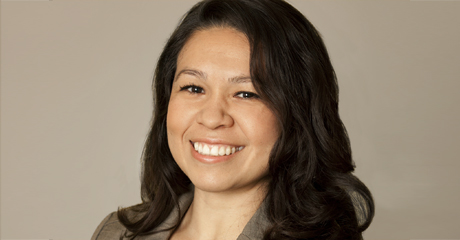About
Chapter 13 Bankruptcy
in Bakersfield
Chapter 13 bankruptcy is a type of bankruptcy that allows individuals to pay off their debts over a period of time, typically three to five years.

Who Should Use Chapter 13 Bankruptcy?
Chapter 13 bankruptcy may be a good option for individuals who:
- Have a regular source of income and are able to make payments on their debts over a longer period of time.
- Want to keep certain assets, such as their home or car, but are struggling to pay off their debts.
- Have debts that are not dischargeable in Chapter 7 bankruptcy, such as certain taxes or student loans.
- Are behind on mortgage or car loan payments and want to catch up on missed payments but need more time.
- Have a lot of debt and want to pay it off over a longer period of time.
It's important to note that Chapter 13 bankruptcy is not right for everyone.
It may not be a good option for individuals who do not have a regular source of income or who do not have the financial means to make the required payments.
It may also not be a good option for individuals who do not want to keep their assets and would prefer to have their debts discharged through Chapter 7 bankruptcy.
This type of bankruptcy is typically used by individuals who have a regular source of income and want to keep their assets, such as their home or car, while paying off their debts and are asking for more time.
How Does Chapter 13 Bankruptcy Work?
In a Chapter 13 bankruptcy, the debtor (that's you) proposes a repayment plan to the court that outlines how they will pay off their debts.
This plan must be approved by the court before it can be put into place. The debtor must make payments to the bankruptcy trustee, who is responsible for distributing the funds to the creditors.
Chapter 13 bankruptcy, also known as a "wage earner's plan," is a type of bankruptcy that allows individuals with regular income to develop a plan to repay all or part of their debts.
In a Chapter 13 bankruptcy, the debtor proposes a repayment plan to make installments to creditors over three to five years. If the debtor's current monthly income is less than the applicable state median, the plan will be for three years unless the court approves a longer period "for cause."
If the debtor's current monthly income is greater than the applicable state median, the plan generally must be for five years. During this time, the debtor's creditors are prohibited from starting or continuing collection efforts.
To be eligible for Chapter 13 bankruptcy, an individual must have a regular source of income and have unsecured debts of less than $394,725 and secured debts of less than $1,184,200. (Check with an attorney to make sure these numbers are still current when you file.)
If you are considering Chapter 13 bankruptcy, it is important to speak with a bankruptcy attorney to determine if it is the right option for you and to understand the process.
Benefits of Chapter 13
One of the main benefits of Chapter 13 bankruptcy is that it can help individuals avoid foreclosures on their home or repossession of their car.
It can also help reduce the amount of debt that the debtor owes, as some debts may be discharged as part of the repayment plan.
Here are several benefits to filing for Chapter 13 bankruptcy:
- It allows you to keep your assets: In Chapter 13 bankruptcy, you can keep your assets such as your home and car as long as you are current on your payments and continue to make payments on your debts as part of your repayment plan.
- It can help you catch up on missed payments: If you have fallen behind on payments for your mortgage or car loan, Chapter 13 bankruptcy can help you catch up by giving you time to repay the missed payments over the life of the repayment plan.
- It can reduce the amount you owe: Chapter 13 bankruptcy can allow you to reduce the amount you owe on certain types of debts, such as credit card debt, by discharging (eliminating) some of it.
- It can stop creditor harassment: Once you file for Chapter 13 bankruptcy, an automatic stay goes into effect, which prohibits creditors from attempting to collect on your debts. This can provide relief from creditor harassment and other collection efforts.
- It can improve your credit score: While bankruptcy will have a negative impact on your credit score, completing a Chapter 13 bankruptcy and making timely payments under the repayment plan can help improve your credit score over time.
It is important to note that Chapter 13 bankruptcy is not for everyone and the rules and laws change regularly Please speak with a bankruptcy attorney to determine if it is the right option for you.
Drawbacks to Chapter 13
However, there are some drawbacks to Chapter 13 bankruptcy.
It can be more expensive than other types of bankruptcy, as the debtor is required to pay a portion of their debts over a longer period of time.
It may also have a negative impact on the debtor's credit score, although the impact is typically not as severe as it is with Chapter 7 bankruptcy.
Here are several drawbacks to filing for Chapter 13 bankruptcy:
- It will stay on your credit report for up to 7 years: A Chapter 13 bankruptcy will remain on your credit report for up to 7 years, which can make it difficult to obtain credit or loans during that time.
- It requires you to pay back your debts: In Chapter 13 bankruptcy, you are required to pay back at least a portion of your debts through a repayment plan. This can be difficult for some people, especially if they have a low income or a large amount of debt.
- It may not discharge all of your debts: While Chapter 13 bankruptcy can discharge some types of debts, it does not discharge all debts. For example, it does not discharge most student loans, child support payments, or tax debts.
- It can be expensive: Filing for Chapter 13 bankruptcy requires paying court fees and attorney's fees, which can be expensive.
- It can be time-consuming: The Chapter 13 bankruptcy process can be lengthy, with repayment plans typically lasting 3 to 5 years.
It is important to carefully consider the drawbacks of Chapter 13 bankruptcy and to speak with a bankruptcy attorney before deciding whether to file.






